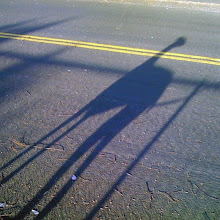Things Might Easily Have Gone the Other Way Round and None Left to Do the Accounting
Long intro to the one last archival post for the drive to 2500, because after you write about death, what else is there (sorry, you Catholics who thought you had me)? Seven years ago I wrote the book column for the local weekly and here's one of those that I think is pretty self-explanatory.
BOOKS UNBOUND
(run date 1/3/02)
Words for the Dead
We came home from visiting relatives at Christmas to find the Pest was dead, and our bright holiday suddenly much dimmer. The Pest was Hugo, one of our two cats, who thought he was a dog. Hugo would run to answer the doorbell and claw at the pants leg of every visitor, demanding attention. A runty pound kitty who grew to be fat and eventually lithe again in his eleven years, he was full of joie de vivre and would share it with you, till you pet him, and enjoyed the purrs. I can barely use the past tense for him.
I’ve been looking for help in books, as that’s what I’d do even if I didn’t write this column, hoping to know that hurt has been felt, that pain has been healed; that my wife and I are not alone, and that someone has made eloquence out of loss (which is most of the writing I love). E.B. White’s “Death of A Pig,” found in the Essays of E.B. White (Harper Colophon 1977) came to me first, that essay taught so often few can read it now without going cross-eyed. But no more stately rendering of our desire for order exists, which is, of course, a desire to hold off death. White raises his nameless pig to slaughter it, and it mucks up the smooth animal husbandry works by dying early on him. Instead, our poor Hugo was never intended for bacon, and his death was unannounced by sickness (the vet assumes some brain aneurysm or stroke).
Then I thought of Francine Prose, and her story “Imaginary Problems” from, of all things, The Peaceable Kingdom (Farrar, Straus and Giroux 1993), about a family falling apart that decides it needs a ritual to bury its hamster. That’s merely the plot, though, for the family needs more than mere ceremony to find healing, having suffered from a miscarriage, infidelity, simple distance. It really has little to offer Hugo, beyond ample evidence life could be much worse. The story (like much of Prose’s work, including her recently appropriately lauded Blue Angel) has much to offer its human readers, however, about the sharp appeal of the contrary, of everything we know that might be wrong. What else could fate be but cruel, as we are so wicked ourselves?
Perhaps Francine Katzenbogen or Edward Lowe might understand my sorrow for Hugo. You, on the other hand, might not know of either Katzengoben (a lottery millionaire who donated her cash for cats) or Lowe (the inventor of Kitty Litter), but you will if you read 52 McGs: The Best Obituaries from Legendary New York Times Reporter Robert McG. Thomas, Jr. (Scribner 2001) a collection of obits edited and selected by Chris Calhoun. McG took as his task raising to a last blast of fame those who otherwise might fall by history’s wayside, in multi-clausal prose a sentence boundary stretcher like myself can only cherish. Perhaps too late, the keen and kind attention paid by McG in his New York Times obits was never too little of a sending off.
Death always leaves us simple lessons. It’s the one great ghost of all art, the white between the words, the edge of the world where the painting ends. It’s that precision that Eastern art seems to know so well—-the doing of the most with the least, as that’s ultimately all we’re left with. John Wilson, who teaches in the College of Creative studies at UCSB, proves he knows this lesson too with Ink on Paper: Poems on Chinese and Japanese Paintings (City Lights Books 2001). His words reflect classic drawings, and I’m most moved by a line like, “When the summer’s evenings cool/enjoy it.” A lovely slim volume.
Hugo, may you be in a land of many black-clad people who will pet you frequently, vigorously, so your white hair will spangle them all luminously, endlessly.
(28 of 31 in the drive to 2500)


2 Comments:
weekend buzz affectively killed.
It is so hard to watch them get older. A fact of life I could do without.
Post a Comment
<< Home